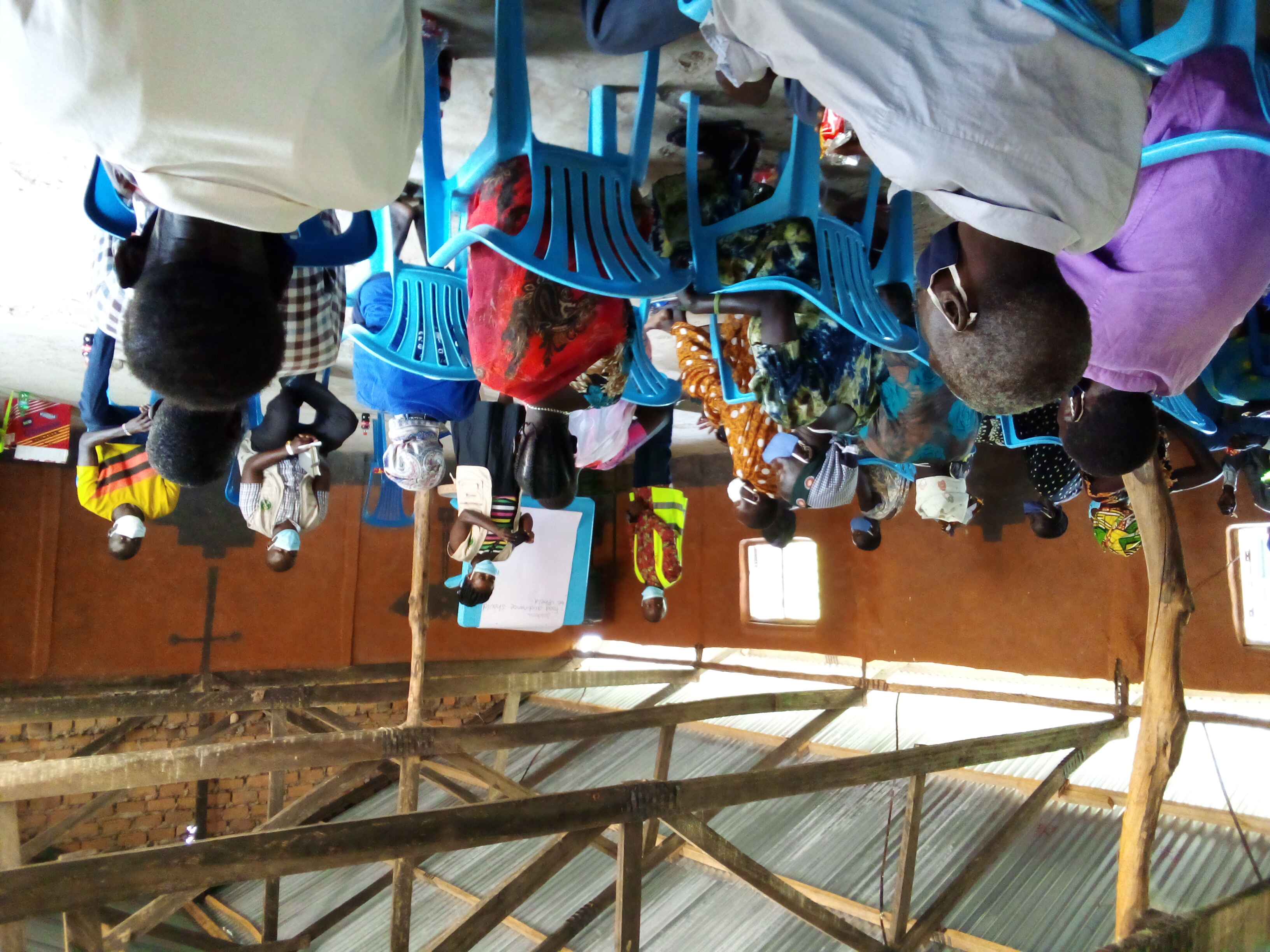
Irene Dawa is technical advisor at Community Empowerment for Peace and Development West Nile (CEPAD). The organization in Uganda is a partner of ifa Funding Programme zivik.

According to the United Nations High Commission for Refugees (UNHRC), there were some 1.5 million refugees in Uganda as of March 2022. What has led to such a high number?
Irene Dawa: We have refugees from all different countries in Uganda, and I don't want to say I know the context in all these countries. I am most familiar with the situation in South Sudan. The war began in 2013. It has been a bloody war. There have been efforts to stop it: two peace agreements have been signed, facilitated by the Intergovernmental Authority on Development (IGAD). But their implementation has been unsuccessful.
You have the refugees from South Sudan who cross into the West Nile region [in northwestern Uganda], and they are all stuck here. They are afraid to go back. Because there have been negotiations, but these agreements have not been implemented, so everybody wonders, if we go back, what will our future be?
The war in the eastern Democratic Republic of Congo has now spilled into Goma [close to the Ugandan border]. We also have some Kenyan refugees, because of the instability at the border between Kenya and Somalia, which has been going on forever and continues to displace people. The Ethiopian refugees we have in Uganda came during the war between Ethiopia and Eritrea from 1998 to 2000 and have never gone back, they are not from the recent Tigray war.
Uganda is unusually generous in granting rights to refugees. What can European countries learn about their treatment of refugees from Uganda?
Irene Dawa:
Europeans need to know that a human being is a human being, and that anybody is a potential refugee. It's just a matter of your government pressing the wrong button, and before you know it you are out. It's not a choice.
Among the refugees fleeing to Uganda from these different places and different conflicts, are there common elements in their stories of reaching Community Empowerment for Peace and Development West Nile (CEPAD-WN)?
Irene Dawa: They say, "I left everything. I came alone. I don’t know where my family is." Or, "I saw my family being killed." These are common stories: massacres with entire villages wiped out. They say, "I was a rich person, I had cattle. But all my animals were taken by the rebels," for example. It is loss of property and loss of family, combined with a sense of helplessness and uncertainty.
The Institut für Auslandsbeziehungen – ifa helps you implement what might be called secondary assistance: programs to prevent conflict and promote integration with the host community, rather than primary aid such as healthcare. Why is that important to you?
Irene Dawa: What I realized right from the beginning is that refugees have a history of violence. It is violence that has sent them here, and therefore we must teach them an alternative to violence. No organization was focusing on this. CEPAD started as a community-based organization: I was investing my own salary into it.
For me it's about changing people's attitudes.
When people are used to violence, you can give them access to healthcare – but don't be surprised when a man starts a fight with his wife, and if his wife runs to the healthcare center, he goes to set it on fire. You have to teach him that there is another way of doing things. In other words, you can have schools, health care centers, etc., but if you have not touched the mind of the person to give him alternatives to his violence behavior, it is a waste. Changing people attitudes and behaviors is a process and take time.
Conflicts in home countries can spill over among refugees abroad. How does CEPAD West Nile approach conflict prevention in its spaces?
Irene Dawa: What we try to tell them is, "There is something common that has brought you here. Can we use this common story to make a better future? The people who started the war don't even know you are here in Uganda. They don't know you by name. You should make a collective effort against the people who are making war in your country. Focus on saying, 'This country belongs to us. Let’s use nonviolence to fight back.'" We tell the refugees that you can always start afresh. We tell them,
Your children deserve a better future and this future is in their country. You need to work together to fight for your children.

Irene Dawa is technical advisor at Community Empowerment for Peace and Development West Nile (CEPAD). The organization in Uganda is a partner of ifa Funding Programme zivik.
The zivik Funding Programme supports civil society actors worldwide in preventing crises, transforming conflicts, and creating as well as stabilising peaceful social and political systems. With their commitment, non-governmental organisations (NGOs) complement state actors by providing significant perspectives and activities. The zivik programme is providing funding for international, national or local NGO projects, which are dealing with civil conflict resolution and peacebuilding efforts.

